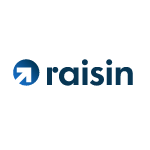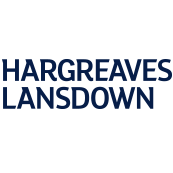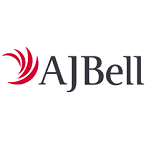-
 Checked By
Richard Berry
Checked By
Richard Berry
- Updated
High-interest-paying accounts are typically savings accounts where you can earn a return on your cash in the form of interest. It could be a cash ISA, a savings account linked to your bank account, or a savings bond where you lock your money away for a few years. But as banking providers compete for your custom, some offer good rates on current accounts, too.
Highest Interest Rate Bank Savings Accounts For March 2026
Here are the top five highest-interest paying current accounts right now:
- Nationwide BS – FlexDirect (Funded): 5.00% AER (interest on balances up to £1,500)
- LHV Bank – LHV Current Account: 3.75% AER (interest on balances up to £1m)
- iFAST Global Bank – Multi-Currency Current Account: 2.65% AER
- Kroo Bank Ltd – Current Account: 2.65% AER (interest on balances up to £85k)
- Santander – Santander Edge Up current account: 2.10% AER (account fee £5/month)
Overall, Nationwide’s FlexDirect is the clear winner for short-term savers willing to switch, while LHV and Kroo suit those wanting interest on everyday balances without teaser rates or complex conditions.
High interest-paying current accounts: the benefits vs the risks
Sometimes you get an introductory interest rate on a savings or current account for the first year, and then your provider automatically moves you to a paltry standard rate. If you don’t switch at this point, you could lose out. In fact, financial watchdog the FCA is considering changing the rules around easy access savings accounts, forcing providers to offer savers a single easy access rate 12 months after they open an account.
Another risk is that of higher inflation– if the prices of the everyday goods rise faster than the interest you can earn on your savings, the purchasing power of your cash diminishes over time. Inflation in the UK is currently high so many cash savings accounts are now offering high interest rates. However, there is also the risk the Bank of England could continue to cut interest rates in future, and banks could pass this on to consumers with worse deals on their savings products.
How to get the highest-interest savings from your current account
Usually, you will get a better rate if you can lock your money away for a few years on a fixed deal. The longer the better: five-year fixed-rate bonds will usually pay more interest than one-year bonds, for example. This is an advantage but could also be a risk if you later find you need access to your cash and have to forfeit interest to get it, or better rates become available elsewhere but your money is locked in.
Is my money safe in a high-interest paying savings current account?
Yes. An important benefit of interest-paying accounts is that they will usually (if the provider is regulated) be covered by the Financial Services Compensation Scheme (FSCS) which protects your savings up to £120,000 in the event your bank goes bust.
High interest paying current account alternatives
It’s a good idea to keep a rainy day fund in cash, and fortunately, the interest you can earn on it has been improving dramatically in recent years. The better news is there are now some better rates available if you are prepared to shop around and switch savings accounts.
Agreat way to do this is to use a savings platform to save through multiple banks by only having to open a single account.
| Name | Logo | GMG Rating | Customer Reviews | Best Rate | Savings Accounts | CTA | Feature | Expand |
|---|---|---|---|---|---|---|---|---|
|
GMG Rating |
Customer Reviews 4.3
(Based on 3 reviews)
|
Best Rate 4.22% |
Savings Accounts 200+ |
See Offer £10k Minimum |
Features:
|
Flagstone savings platform gives you access to the widest range of savings accounts Provider: Flagstone Savings Platform Verdict: Flagstone is an excellent way for those wanting to save over £10,000 to access a broad range of high interest paying savings accounts. It operates a cash deposit platform that allows you to access high-interest savings products from multiple banks. Through the Flagstone platform, you can access over 200 high-interest savings accounts from more than 60 different partner banks and building societies. Partners include the likes of HSBC, Santander, Aldermore, and Shawbrook. Is Flagstone a good savings platform? Yes, through the Flagstone platform, you can access hundreds of different high-interest savings accounts including instant access, notice, fixed-term, and Sharia accounts. Many of these accounts have excellent interest rates (some even have exclusive interest rates that can’t be found elsewhere). Once you have an account with the company, you can spread your money out over many different savings accounts and banks without having to complete an application for each individual savings account. So, for example, if you have £150,000 to deposit, you could potentially put £50,000 with three different banks. You can move, place, or spread your deposits 24 hours a day, seven days a week. However, it’s worth pointing out that there is no app for the platform at the moment – it can only be accessed through an internet browser. In terms of customer protection, eligible deposits are protected up to £85,000 per depositor per UK bank (£170,000 for joint accounts). So, if you plan on depositing more than £85,000 with Flagstone, spreading your cash out over several different banks on the platform is sensible. One drawback of Flagstone is that not all banks are on the platform. So, it doesn’t offer access to the whole market, but with 200+ accounts from 67 banks what Flagstone offers is substantially more than any other platform. Another issue to be aware of is that it can take 24 hours (or sometimes longer) for your cash to be transferred from your holding account to your chosen savings account. So, you may miss out on interest for a day or two. Pricing: Customers only see net prices, but there is no cost scale available on the website. Market Access: Of all the savings platforms we test Flagstone offers the most bank account access. Apps & Platform: No app and no issues with the simple-to-use website. Customer Service: We got straight through on the phone when we had a question about ISA accounts. There is no live chat function, though. Does Flagstone have an ISA? No, Flagstone does not offer ISA accounts. But, as the minimum deposit on the Flagstone savings platform is £10,000, it’s safe to assume that Flagstone caters to higher-value accounts that would quickly fall outside the ISA limits. When we phoned Flagstone to test their customer service to ask about the availability of the ISA, they said they were looking at it but had no immediate plans to launch an ISA product. Is Flagstone safe? Flagstone should be considered trustworthy. The company is authorised by the Financial Conduct Authority (FCA) under the Payment Service Regulations 2017 for the provision of payment services. Meanwhile, all the UK-based banks and building societies on its platform are members of the Financial Service Compensation Scheme (FSCS). So, eligible deposits are protected up to £85,000 per depositor per UK bank (£170,000 for joint accounts). How much does Flagstone charge in fees? With Flagstone, there is no fee to open an account. There are also no ongoing administration or management fees. As for how the platform makes money, it uses a ‘share of interest’ model where it takes a small cut of its partner banks’ interest rates (up to 0.30%). However, this is deducted before any rates appear on the platform so the rate that you see will always be the rate that you receive. To put that in perspective, if you save the minimum deposit required open a Flagstone account (which is currently £10,000) you will lose out on £30 in interest per year. But as Flagstone only shows the net rate (the rate you will receive) it doesn;t feel like a charge but it is. So, in theory, you can earn more interest by going to the provider directly; the disadvantage of this, of course, is that you have to open up lots of different savings accounts. So you are sacrificing (paying) a little bit for the convenience of having lots of different savings accounts and providers in one place. Flagstone savers receive over £500m interest in 2024 In February 2025 Flagstone reported record-breaking results for 2024, as more savers turned to cash deposits to secure inflation-beating returns. The company’s revenues surged 46% to £55 million, marking its second consecutive year of profitability, while assets under administration (AUA) soared 49% to £16.2 billion. Flagstone customers collectively earned over £500 million in interest on their savings in 2024, highlighting a shift in how UK consumers are managing their cash. With inflation remaining a concern and investment taxes increasing, more savers sought out competitive interest rates rather than leaving money in low-yielding traditional accounts. CEO Simon Merchant attributed the platform’s success to the changing economic environment. “In 2024, managing money required careful navigation of inflation, fluctuating interest rates, and significant tax hikes,” he said. “Many savers took proactive steps to ensure their cash worked harder for them.” Flagstone’s direct-to-consumer (D2C) user base expanded by 55% last year, reflecting growing consumer awareness of the benefits of diversifying savings across multiple accounts. The number of banks on the Flagstone platform increased to 66, offering over 220 savings accounts, ensuring customers had access to consistently competitive rates. As of January 2025, 95% of rates on the platform exceeded the market average, with over a third of available accounts offering returns of 4% AER or more. Beyond individual savers, Flagstone also saw increasing demand from financial institutions looking to integrate its platform. More banks and fintech firms have partnered with Flagstone to offer enhanced savings products to their customers, taking advantage of the platform’s streamlined technology and data insights. Flagstone continued to enhance its user experience in 2024 by revamping its Know Your Customer (KYC) process, reducing friction for new customers and improving onboarding efficiency. The company also upgraded its banking partner portal, allowing financial institutions to better track how savers interact with their products. Looking ahead, Flagstone is focusing on automating more of the savings process, enabling customers to seamlessly move their money into higher-yielding accounts. Following a £108 million investment from Estancia Capital Partners, one of the UK’s largest fintech investments last year, the company is well-positioned for further growth in 2025. With the UK savings market valued at £1.5 trillion, but much of it earning 2% or less in interest, Flagstone sees a significant opportunity to help more savers achieve better returns in a rapidly evolving financial landscape. Pros
Cons
Overall4.8 |
||
|
GMG Rating |
Customer Reviews 5.0
(Based on 2 reviews)
|
Best Rate 4.15% |
Savings Accounts 100+ |
See Offer £1 Minimum |
Features:
|
Raisin Savings Platform: Raising rates for savers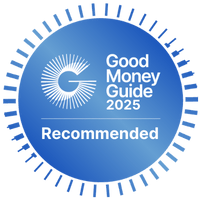 Provider: Raisin Savings Platform Verdict: Raisin was founded in 2013 as a savings platform with over 1 million customers, 1,390 partner banks, and over 44 billion GBP in deposits across 30+ countries and 8 marketplaces. Raisin gives you access to some of the best savings accounts and highest interest rates by simply moving your money between banks and building societies. Is raisin a good savings account? Raisin is not a savings account rather a platform that connects you to savings acounts. If you are constantly looking to move your money around to get the best interest rates for your cash, Raisin is a good choice as they have a large range of savings accounts and a very easy-to-use website. Pros
Cons
Overall4.7 |
||
|
GMG Rating |
Customer Reviews 3.8
(Based on 1,774 reviews)
|
Best Rate 4.1% |
Savings Accounts 70+ |
See Offer £1 Minimum |
Features:
|
Hargreaves Lansdown Active Savings Won Best Savings Platform 2025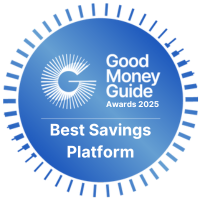 Account: Hargreaves Lansdown Active Savings Description: Hargreaves Lansdown’s Active Savings won “Best Savings Platform” in the 2025 and 2024 Good Money Guide Awards. HL’s savings product was launched by the investment broker in 2018 and lets customers pick and choose from a range of the best easy-access and fixed-term savings accounts. The Active Savings portal is now five years old and as of the end of December 2022, they have helped over 146,000 clients savings, over £6.3 billion. How does Active Savings work? The key advantage is that you can get the best interest rates for your savings, by constantly switching savings accounts without actually having to move your money around or open lots of different savings accounts. You get started by depositing a minimum of £1,000 which you can allocate to as many savings accounts as you want. You’ll receive monthly statements and a warning when rates are about to expire. Hargreaves Lansdown Active Savings is a similar product to raisin, which also lets you manage multiple savings accounts from a single platform. Emma Wall, head of investment analysis and research at Hargreaves Lansdown said that:
Best Rates: The current best savings rate is 4.26%. You can see the savings products available in Hargreaves Lansdown’s Active Savings portal.
At the moment, the service offers access to over 70 different savings accounts, so you have a good chance of finding some of the best savings providers with the highest interest rates. Hargreaves Lansdown hopes to add more providers in time, which will increase choice. You can also save money in a cash ISA which reduces your tax bill. However, if you want better returns and are prepared to take more risk, a stocks and shares ISA maybe more appropriate. The biggest potential disadvantage of the service is that you might be able to get better rates by going to the banks directly. This is because Hargreaves Lansdown doesn’t charge you directly, instead they charge the providers you save with. This means the same or similar products offered directly by the banks and building societies may have different interest rates to those available on Active Savings. So you are paying a small amount for the convenience of HL managing the process. And while switching is easy, you need to be sure you’ll take notice of the email warnings about soon-to-expire rates. If you’re a Hargreaves Lansdown customer, Active Savings is probably going to be the most convenient savings option out there. And with more banks set to come on board, the choice of accounts – and hopefully rates – will soon increase. Fixed-Term Cash ISAs: Hargreaves Lansdown is also one of the only (and first) investment and savings platforms to offer Fixed Term Cash ISAs that sit alongside existing easy access and limited access options, meaning clients can now spread their Cash ISA allowance across multiple products. Is HL Active Savings safe? Yes, your savings are protected by the FSCS but this only applies once the money is deposited into an FSCS-protected partner account but not while in the HL holding account. Pros
Cons
Overall4.9 |
||
|
GMG Rating |
Customer Reviews 4.2
(Based on 1,105 reviews)
|
Best Rate 4.1% |
Savings Accounts 30+ |
See Offer £1k Minimum |
Features:
|
AJ Bell Cash Savings Hub Review: Save as well as invest with low costs Account: AJ Bell Cash Savings Hub Description: In 2020 AJ Bell launched its Cash Savings hub, which allows its customers to select from among a range of selected savings accounts from third-party providers. The range directly competes with the Active Savings Account offered by AJ Bell’s chief rival, Hargreaves Lansdown, as well as online marketplace Raisin and savings platform Flagstone. Is AJ Bell Cash Savings Hub any good? Currently, the top savings interest rates offered on the AJ Bell Cash Savings hub are 4.55%. All accounts on the platform are covered by the Financial Services Compensation Scheme (FSCS) guarantee of up to £85,000 on bank deposits. By comparison to these three alternatives, the AJ Bell Cash Savings hub is relatively limited. Unlike the others, AJ Bell’s service does not offer any instant access savings accounts, from which savers can withdraw their money without incurring a penalty. As of 22/01/2025 it offers 27 fixed term savings accounts and 6 notice accounts. These numbers are a lot smaller than those offered by the platforms above. Fixed term savings accounts or bonds typically lock money away for a term of between six months and five years, with a set interest rate for that period. Notice accounts require you to give a notice of between 30 to 90 days before withdrawing your money. One point in favour of the AJ Bell Cash Savings hub is its simplicity. The large numbers of accounts offered by its rival comparison platforms can sometimes seem excessive and potentially confusing. There are usually a few accounts in each category which offer better interest or conditions than the others, so having a wider range of options does not necessarily make a platform superior in all respects. The rates on the two accounts mentioned at the top of this article are among the highest currently available on these platforms, with only Raisin matching them. Flagstone and Hargreaves Lansdown’s platforms do not offer accounts with such high rates, as of 22/01/2025. The hub offers a tool on its website which shows you exactly how much money you will earn in interest from each account when you allocate a set amount of money. Among its rivals, only Raisin offers a similar feature to those browsing their websites. The tool appears to only allow you to allocate savings of up to £85,000 to accounts, which is the limit of the FSCS guarantee. This restriction makes sense and is a good way of protecting savers who may be unaware of the limit. The main webpage of the hub also clearly summarises the most important information regarding each account: the interest rate, the term length and the minimum deposit. By contrast, Raisin requires you to do a bit more searching to see the minimum deposit. The filter for the comparison page is also pleasantly simple, allowing savers to select accounts by four different ranges of term length. Its rivals present many more filters, which could be confusing for beginners. Pros
Cons
Overall4.7 |
For an alternative to cash savings accounts, you could take a higher-risk approach and invest some of your cash in an investment ISA for the potential to earn higher returns. However, it is worth noting that with a stocks and shares ISA, the stock market can go up and down. If it goes down your savings will be worth less.
How can I choose the best interest-paying account?
To get the best interest on a savings account you need to look for the AER, which stands for Annual Equivalent Rate, this is the rate you need to compare rates across different providers.
You can see the best deals on specific types of high-interest savings accounts here:


